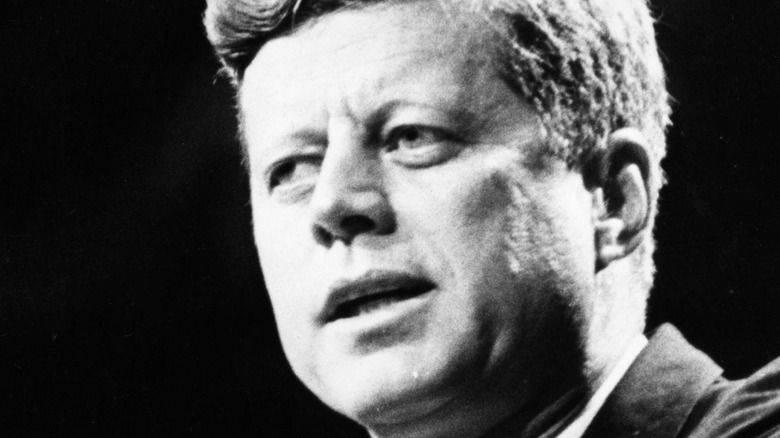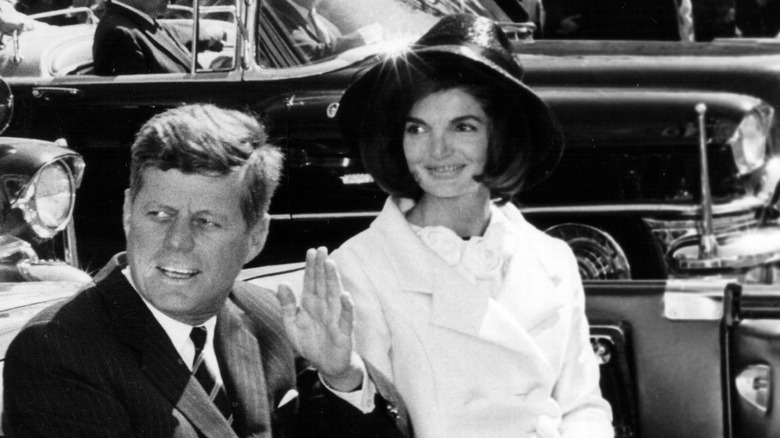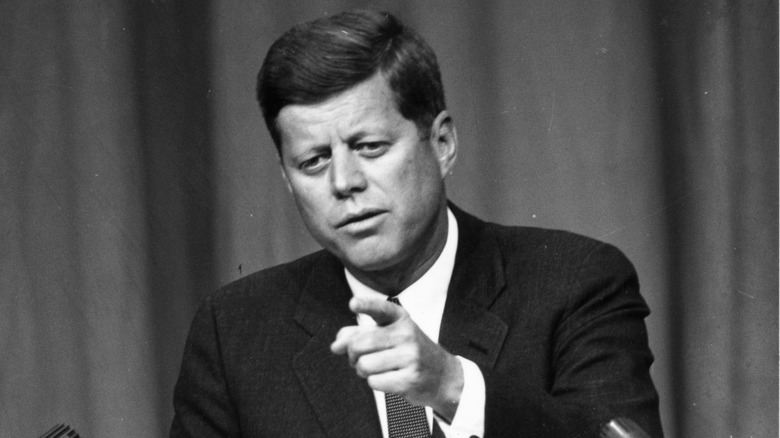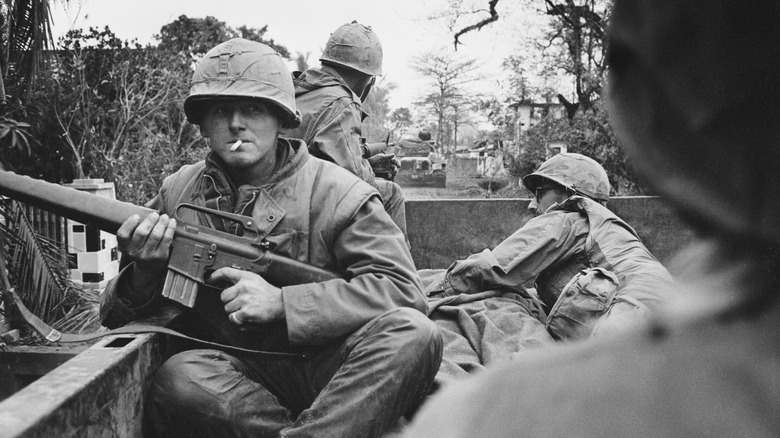Here's What Could've Happened If JFK Survived His Assassination
Millions of Americans can tell you exactly where they were and what they were doing on November 22, 1963. That is, of course, the day the 35th President of the United States, John F. Kennedy, was shot and killed by an assassin. The day changed history in more ways than one, and even six decades after the event, it continues to be one of the most talked-about and debated moments in American history. To this day, questions remain about whether or not Kennedy's assassin, Lee Harvey Oswald, acted alone. And the grainy video footage taken by a bystander that day provides more questions than answers.
But what if it had never happened? What if Kennedy hadn't been wearing his back brace that day and would have possibly been able to duck the second, fatal bullet? Or what if his motorcade through Dallas had taken a different route? What would the second half of the Kennedy administration have looked like, and would he have served a second term?
John F. Kennedy might have won reelection in 1964
Even as he rode through Dallas on that fateful day, John F. Kennedy was preparing for the 1964 presidential election, the National Constitution Center reports. And writer Scott Bomboy believes that the Massachusetts Democrat was poised to win, pointing to his 58% approval rating, which was in the range of those of Richard Nixon, Ronald Reagan, Bill Clinton, George W. Bush, and Barack Obama — all of whom won reelection.
At the time of Kennedy's assassination, Republican Barry Goldwater was the likely choice to oppose him in '64, according to the National Constitution Center. The two men were friends, and the Arizona senator dropped out of the election after Kennedy's death, only to re-enter it because he disliked Lyndon Johnson. Would Kennedy have been able to defeat Goldwater? Author Bryce Zabel used his novel "Surrounded by Enemies: What If Kennedy Survived Dallas?" to speculate that there would have been investigations into Kennedy's extramarital affairs and purported ties to organized crime. As Live Science reports, those hypothetical investigations could have derailed Kennedy's reelection attempts or even led to his eventual impeachment before he could run for office again.
The Civil Rights Act might have been delayed
John F. Kennedy's successor, Lyndon Baines Johnson, is credited with passing the Civil Rights Act — a key piece of Kennedy legislation that, at the time of his assassination, was stalled in Congress. Indeed, Johnson himself told America that the best way to honor Kennedy's legacy would be to pass the Civil Rights Act, as the National Constitution Center reports. Even with his appeals to the American people to honor his predecessor by passing the act, Johnson still had to negotiate with Congress to get it done. The process took several months, ultimately passing in July 1964.
Without Kennedy's death serving as a rallying cry for passing the Civil Rights Act, the legislation might have been doomed — at least for a while. With an election looming and Southern Democrats opposing the bill, Kennedy might have tabled it until after the 1964 election. Even then, Kennedy would have faced a "protracted battle" getting it pushed through, per the National Constitution Center.
The Vietnam War might not have happened
The U.S. was already entangled in the Vietnam War before American troops began landing there. As the National Constitution Center reports, John F. Kennedy's administration had indirectly supported a coup that toppled South Vietnamese president Ngo Dinh Diem, and Kennedy had concerns about Vietnam "[going] down the drain." Of course, it was the 1964 Gulf of Tonkin resolution that allowed Lyndon Johnson to commit massive numbers of American troops to the conflict. But had Kennedy been still in power at the time, it might have been a different story.
Brown University scholar Koji Masutani and his team researched Kennedy's administration and found that he had a tendency to reject the advice of his military commanders — as was the case in the Bay of Pigs invasion and the Cuban Missile Crisis — in favor of diplomatic solutions. Indeed, the Masutani team concluded that Kennedy would have wanted the U.S. out of Vietnam completely by 1966. However, as Live Science reports, Kennedy's brother, Robert, told reporters that the former president had no intention of getting out of the entanglement.



